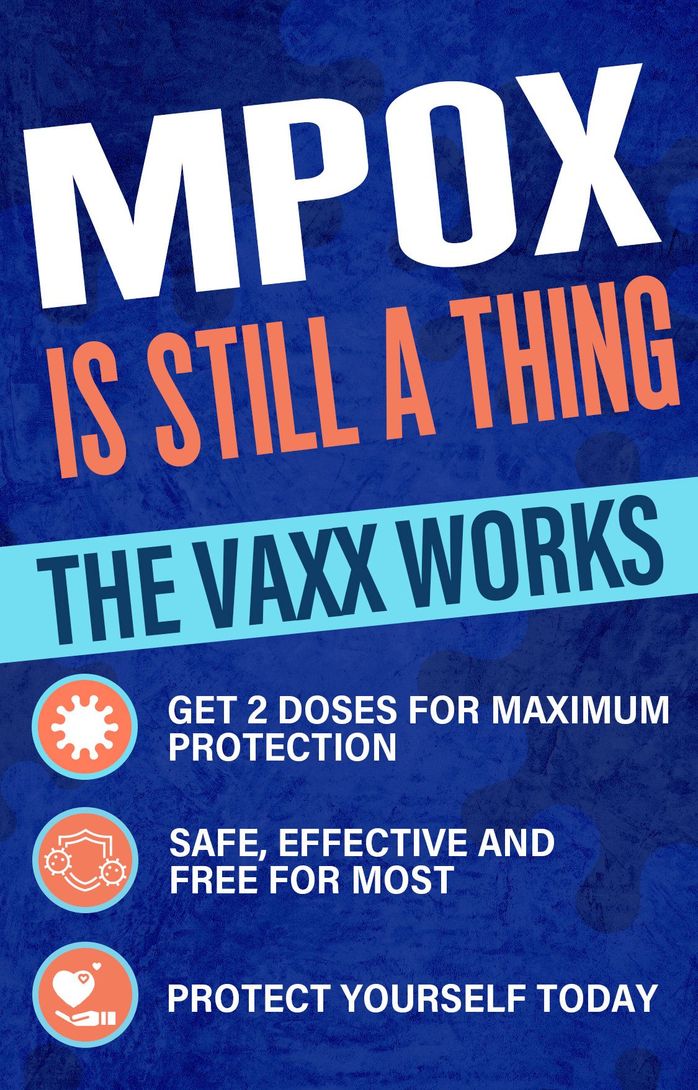

Monkeypox: What You Should Know
Anyone can get Monkeypox:
- However, certain groups are being affected by monkeypox more than others, including men who have sex with men (MSM).
- Some groups may be at higher risk for complications if they contract monkeypox--this includes people with weakened immune systems, the elderly, young children, and pregnant people.
Symptoms:
- Rashes, bumps or blisters on the face, hands, feet, chest or genital area. The rash may appear similar to common sexually transmitted infections.
- Flu-like symptoms such as fever, headache, muscle aches, fatigue and swollen lymph nodes. These symptoms may occur before the rash, after the rash appears, or not at all.
How Do You Get It?
Monkeypox is spread through close physical contact with someone who has monkeypox. This includes:
- Direct contact with monkeypox sores or rashes.
- Respiratory droplets during prolonged face-to-face contact with someone with monkeypox.
- Contact with objects or fabrics (clothing, bedding, towels) that have been used by someone with monkeypox.
What should I do if I was exposed or have symptoms?
- If you experience symptoms consistent with monkeypox, contact your healthcare provider for an assessment.
- Monkeypox is diagnosed through tests on samples taken from people suspected of having monkeypox.
- Most patients have mild illness, so treatment usually consists of relief of symptoms and supportive care.
- There are anti-viral treatments available for pre- and post-exposure.
How Can I Protect Myself?
You can protect yourself from monkeypox by taking some simple steps. This is especially important for those at higher risk:
- Ask your sexual partners whether they have a rash or other symptoms consistent with monkeypox.
- Avoid skin-to-skin contact with anyone who has a rash or monkeypox related symptoms.
- Follow reliable sources of health information, including the CDC and your local health department.
HIV and STI Testing - Do I Need to Get Tested?
All Information is strictly confidential.
We offer free testing for Chlamydia, Gonorrhea, HIV, and Hepatitis C, and connectivity to treatment. Safer sex materials, such as condoms and lubricant, are also available for free.
CDC recommends that everyone between the ages of 13 and 64 get tested for HIV at least once in their lifetime. For people with certain risk factors, CDC recommends getting tested at least once a year. CDC recommends testing at least once a year for syphilis, chlamydia, and gonorrhea. Those who have multiple or anonymous partners should be tested more frequently (e.g., every 3 to 6 months).

